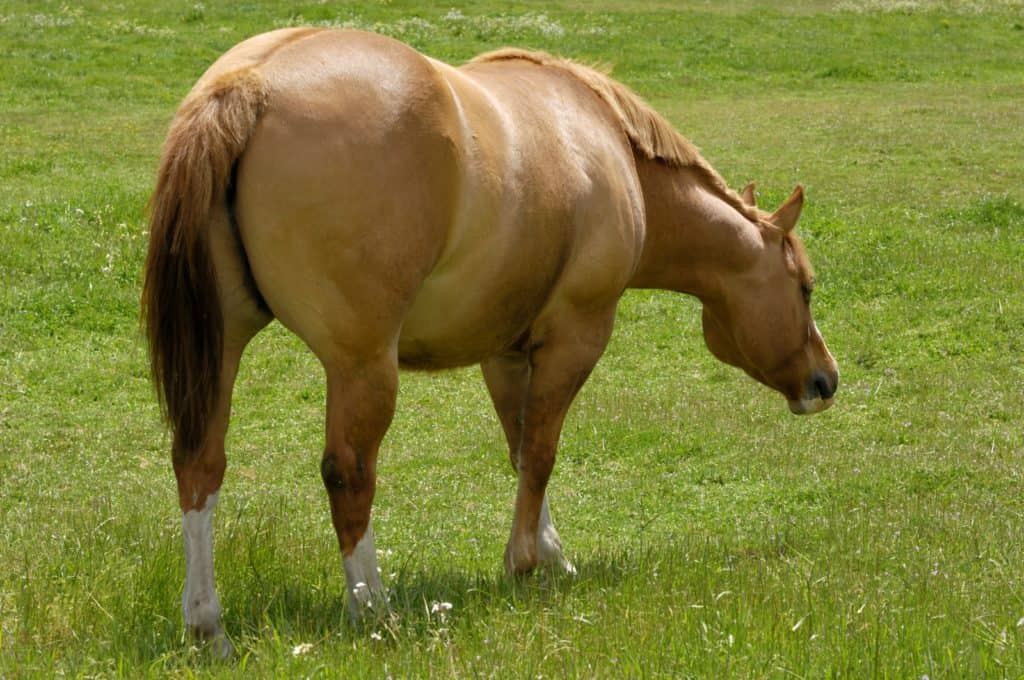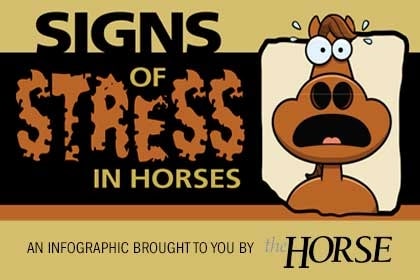
Is EMS the Same as IR in Horses?
Dr. Amanda Adams explains the difference between equine metabolic syndrome and insulin resistance.

Dr. Amanda Adams explains the difference between equine metabolic syndrome and insulin resistance.

Do horses with PPID, EMS, and/or IR have a greater laminitis risk after receiving joint injections? Drs. Vern Dryden and Amanda Adams respond.

Learn what distinguishes PPID, EMS, and IR from each other and how to care for “metabolic” horses.

Improve your knowledge about diagnosing, treating, and preventing equine metabolic syndrome (EMS).

Learn more about nutrition’s role in the development and management of equine endocrine disorders and how you can reduce your horse’s risk of developing a secondary disease.

A “GIP” antagonist could provide an alternative way to combat metabolic disease in equids, researchers found.

She is studying how diet, exercise, and season impact metabolic and inflammatory responses in horses with endocrinopathies.

Is the sugar content in beet pulp too high for some horses? Read an equine nutritionist’s answer.
Presentation topics will include metabolic issues, breeding, melanoma, lameness in prepurchase exams, and more.

Older horses tended to have higher insulin secretory responses to glucose compared to adult horses, researchers found.

Listen to audio features on equine learning, behavior, dentistry, metabolic syndrome, parasites, and more.

Find information on stress in horses, skin conditions, conditioning, metabolic syndrome, serum amyloid A, and more.
During this year’s lecture, farrier Daisy Bicking and Dr. Nick Frank will present on laminitis and endocrine disorders.

Low-intensity swimming could help maintain glucose and insulin levels without putting excess strain on horses’ limbs.

Compared to a control diet, Spirulina supplementation led to significant weight loss and reduced fasting insulin levels, researchers found.

Dr. Lisa Tadros shares information about identifying EMS, PPID, and laminitis in senior horses.
Stay on top of the most recent Horse Health news with
"*" indicates required fields